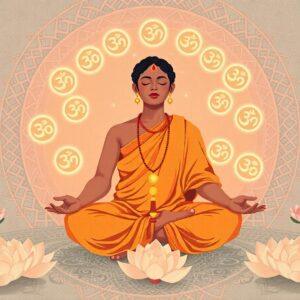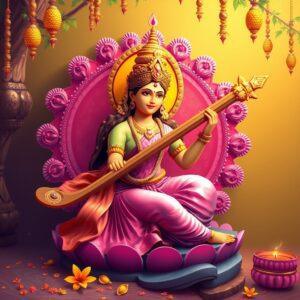Hinduism, a tapestry woven with threads of ancient wisdom and modern relevance, stands as one of the world’s oldest religions. This exploration delves into the rich history of Hinduism, tracing its origins, evolution, and the core beliefs that continue to shape the lives of millions.
Origins of Hinduism: Unveiling the Ancient Roots
Hinduism’s origins are not tied to a single founder, but rather a confluence of diverse cultural and religious influences spanning millennia.
- Indus Valley Civilization (circa 3300–1300 BCE): This era provides the earliest glimpses into practices resembling later Hindu traditions. Ritual bathing, evidenced by the Great Bath of Mohenjo-Daro, and animal sacrifices suggest spiritual activities akin to those found in later Hinduism. Archaeological findings from this period hint at early forms of deity worship and ritual practices.
- Vedic Period (circa 1500–500 BCE): The Vedas, Hinduism’s foundational texts, were composed during this period. These sacred scriptures comprise hymns, rituals, philosophical discussions, and social guidelines that remain central to Hindu thought and practice. They offer profound insights into the nature of reality, the cosmos, and the human condition.
- Aryan Influence: The arrival of the Aryans brought significant changes, introducing Sanskrit, the sacred language of Hinduism, and influencing the development of religious and social structures. Their contributions further enriched the evolving tapestry of Hindu beliefs and practices.
- Upanishadic Period (circa 800–200 BCE): This period marked a shift towards philosophical inquiry, introducing concepts like Brahman (the ultimate reality) and Atman (the individual soul). These profound ideas shaped Hindu spiritual thought and continue to be central to understanding the nature of existence.
- Integration with Other Religions: Hinduism’s inclusive nature is reflected in its absorption of elements from other faiths, including Buddhism and Jainism. This integration enriched Hindu practices and broadened its philosophical perspectives, demonstrating its adaptability and capacity for growth.
- Bhakti Movement (circa 7th-12th centuries CE): This transformative movement emphasized personal devotion to deities, making spiritual practices more accessible to the common people. It fostered a deeper emotional connection with the divine and paved the way for various devotional traditions within Hinduism.
- Epics: The Mahabharata and Ramayana, epic narratives rich in symbolism and moral teachings, have profoundly shaped Hindu beliefs and practices. These stories explore themes of duty, righteousness, and devotion, providing guidance for ethical living and spiritual growth.
Core Beliefs and Practices: The Essence of Hindu Dharma
Hinduism embraces a diversity of beliefs and practices, unified by certain core principles.
- Key Concepts:
- Dharma: The principle of righteousness and ethical conduct that guides individual actions and social harmony.
- Karma: The law of cause and effect, where actions have consequences that shape future experiences.
- Moksha: Liberation from the cycle of rebirth, the ultimate spiritual goal in Hinduism.
- Trimurti: The divine trinity of Brahma (the creator), Vishnu (the preserver), and Shiva (the transformer), representing the cyclical nature of the universe.
- Sacred Texts: The Vedas, Upanishads, Bhagavad Gita, and Puranas serve as authoritative sources of wisdom and guidance for Hindu practices and beliefs.
- Common Practices:
- Puja: Ritual worship involving offerings and prayers to deities.
- Meditation: A practice to cultivate inner peace, focus, and spiritual awareness.
- Yoga: A system of physical and mental disciplines aimed at achieving holistic well-being and spiritual enlightenment.
- Major Festivals: Diwali, Holi, Navaratri, and other vibrant festivals bring communities together in celebration and spiritual reflection.
Poojn.in: Your Companion on the Hindu Spiritual Path
Poojn.in, India’s leading provider of spiritual and religious products, offers a wide selection to support your Hindu practices. Explore our collection of puja items, sacred texts, and more:
- Lord Shiva Murti: Bring the divine presence of Lord Shiva into your home with our beautifully crafted murtis.
- Mangalam Camphor: Enhance the purity of your puja rituals with high-quality camphor.
- Bel Mala: A sacred garland for offerings and prayers to Lord Shiva.
- Shiva Lingam: A sacred symbol representing Lord Shiva, ideal for puja and meditation.
Conclusion: Hinduism’s Enduring Legacy
Hinduism’s journey through time reflects its remarkable adaptability and enduring wisdom. From its ancient origins to its global presence today, Hinduism continues to inspire and guide individuals on their spiritual paths. Its profound teachings, vibrant rituals, and emphasis on ethical living offer a timeless framework for navigating the complexities of life and seeking deeper meaning.


